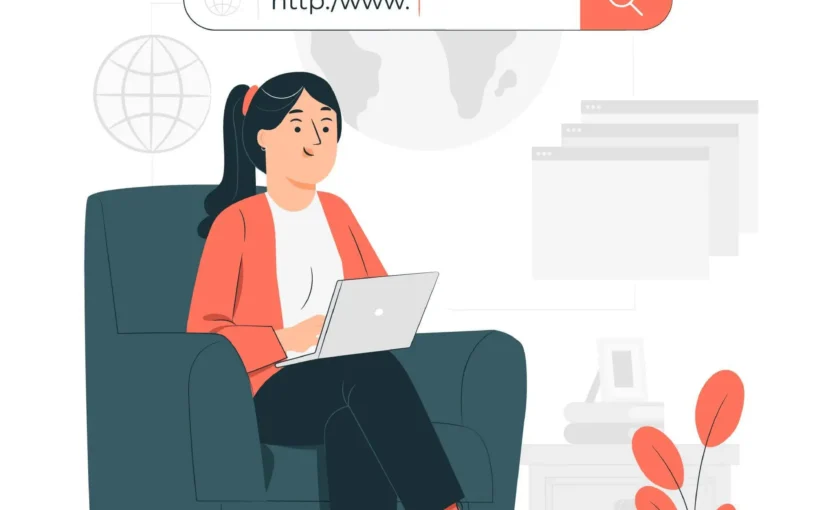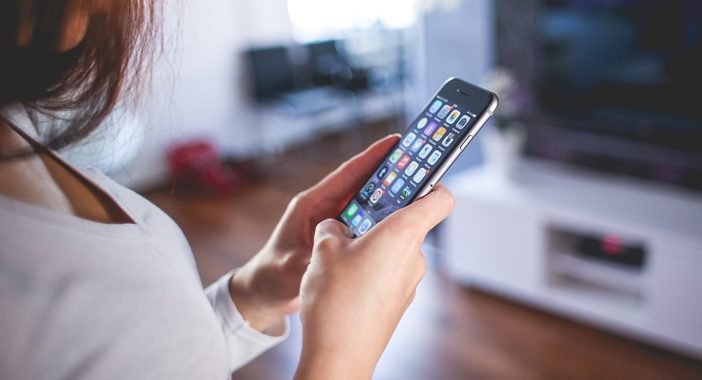For instance, if you are a hero in action movies that go through the mysterious forests’ territories where unbelievably dangerous creatures and traps are lurking. Internet connection is the guide and the only means of communication available to you in this beautiful yet somewhat ‘wild’ territory or country you are in. It is similar to when a person is going to a new geographical area with which one is not well aquatinted; one gets ready and ensures that one can handle the new public network area. Okay then, we start now and search for safer browsing so that you can continue exploring with priceless safety and without concerns.

Content
1. Understand the Terrain: The Risks of Public Networks
It’s essential to know the terrain before venturing into the digital jungle. Public networks, much like dense forests, can conceal numerous threats. Common dangers include:
- Man-in-the-Middle Attacks: Cybercriminals can intercept your conversations and take essential data, much like a predator may wait to attack its prey.
- Unencrypted Networks: Consider these treacherous paths where any data you transmit can be easily intercepted.
- Malware Distribution: Like venomous creatures, malware can infect your device, causing significant harm.
Stay Alert: Recognising these hazards is your first line of protection. You may safely cross the digital jungle by identifying potential hazards and avoiding mistakes that may result in identity theft or data breaches.
2. Equip Yourself with a Virtual Private Network (VPN)
In the wild savannah of the internet, a VPN is your armor, hiding your activity traces through encryption. A virtual private network (VPN) secures your internet connection, making it harder for hackers to bug you.
Top VPN Recommendations:
- ExpressVPN: Credited for its fast connection, security, and user-friendliness, ExpressVPN is one of the most used VPNs by the nomads.
- NordVPN: Provides adult content with strong AES-256 encryption, no logs policy, and 63+ nations’ connection points.
- CyberGhost: Inexpensive and easy to use, CyberGhost is full of security, boosting additional options and delivering stable connections.
Stay Protected: Connecting to a VPN helps encode your data in a way that a lie-in-wait predator cannot understand. This is like going through the jungle with the cloak of invisibility, a sure way to keep one’s identity out of the reach of the vices.
3. Fortify Your Defenses with Two-Factor Authentication (2FA)
Two-factor authentication (2FA) is your armor in cybersecurity because it secures an account and a password. 2FA is a backup; the two major categories are knowledge-based, such as a password, and possession-based, like a phone number, rendering it almost impossible for hackers to penetrate the user’s accounts.
The following are the steps of how it is that 2FA is set up:
Google Authenticator: Utilize the codes for a given period for the accounts for which the codes have explicitly been used.
Authy: An overall 2FA application that can be implemented on mobiles and tablets is advised.
SMS Verification: As far as 2FA is concerned, it is possible to come across services that use text messages to complete such procedures, even though an application is safer.
Pro Tip: It is always helpful to review it frequently and perhaps ‘rotate’ it for adequate protection.
Stay Secure: 2FA is like having an additional key to your most secure home; your security is complemented by one more barrier. For instance, even if one finds the first key, one cannot open it with the second key, thus protecting the treasure from strangers.
4. Keep Your Gear Updated
Vulnerabilities that hackers exploit to access your system can be left by outdated software. You can ensure you have the latest security updates and improvements by regularly updating your operating system, browser, and programs.
Tips for Keeping Software Updated:
- Enable Automatic Updates: Most programs and operating systems have this feature. Turn on this option to guarantee that you always get the most recent software automatically.
- Regularly Check for Updates: Even if your system updates automatically, look for and install updates periodically. This guarantees that no essential patches are overlooked.
- Update Browsers and Plugins: These are frequently the targets of cyberattacks. Update them often to reduce dangers.
Pro Tip: Use an integrated security audit tool with a password manager to find and change weak or hacked passwords.
Stay Ready: Consider software upgrades as honed instruments. Every upgrade makes your digital equipment more robust. It is prepared to repel any cyber threats hiding in wait.
5. Avoid Using Public Wi-Fi for Sensitive Transactions
Don’t use public WiFi for anything that requires privacy. It could be more secure by comparing open Wi-Fi to your cellular data connection.
Alternative Connectivity Solutions:
- Mobile Hotspot: Use your smartphone as a hotspot to generate an internet connection securely.
- Portable Wi-Fi Device: Skyroam Solis and GlocalMe G4 Pro provide safe Wi-Fi anywhere.
Stay Smart: Sensitive transactions are like handling rare artifacts—requiring the highest level of care and security. A more secure connection ensures that your valuable data remains intact and unscathed.
6. Disable File Sharing and AirDrop
Hackers can utilize file-sharing functions and features, like AirDrop on Apple devices, to access your files or transmit harmful materials. This should be turned off when linked to public networks to avoid unauthorized access.
How to Disable File Sharing:
- Windows: Go to Settings > Network & Internet > Sharing Options and turn off file sharing.
- Mac: Go to System Preferences > Sharing to uncheck File Sharing.
- AirDrop: Swipe up (or down) for Control Center, then tap AirDrop; select “Receiving Off”.
Stay Guarded: Disabling file sharing reduces the chances of data theft or malware infection by preventing unwanted entry into your files and machines.
7. Be Cautious with Public Charging Stations
Hacking attempts that could lead to data theft or installing malware on your device can occur using public charging stations and “juice jacking.”.. Use your USB data blocker, cable, or charger to reduce this risk.
Tips for Safe Charging:
- Use a Portable Charger: Always carry a power bank to avoid using public outlets to charge your electronics.
- USB Data Blocker: While permitting charging, gadgets like the PortaPow USB Data Blocker block data transmission.
- Avoid Public USB Ports: Stick to using AC outlets and your charger when possible.
Stay Charged and Safe: Public charging outlets may provide hackers access to your gadget. Using your charger and wires guarantees safe charging, shielding your data from dangers.
8. Monitor Your Accounts and Devices
Regularly monitoring your online accounts and devices for unusual activity can help you quickly detect and respond to security breaches. Set up alerts for suspicious activities and regularly review your account settings and permissions.
Tools for Monitoring:
- Credit Monitoring Services: Companies like Equifax and Experian provide notifications for questionable activity and credit monitoring.
- Security Software: Use all-inclusive security software that provides alarms and real-time monitoring.
- Account Activity Logs: Regularly review activity logs for your online accounts to detect unauthorized access.
Stay Vigilant: Early detection of security breaches can minimize damage and allow you to take swift action to protect your data and accounts. Regular monitoring helps you stay proactive about your cybersecurity.
Why is Nomad Internet a Game-Changer?
As much as a blade in the Swiss knife is designed for a specific function, the software, in this case, also has specific functions. Nomad Internet can, therefore, allow a secure and fast connection and brings resonance with its security measures and outstanding customer service. This is like a parent having experienced life out there, so getting one who has to look after and lead you through the bush.
A Day in the Life with Nomad Internet
Morning: You wake up in a big wooden house in the mountains, and the sky with stars slowly changes to a sky with gold. As you take your coffee in the morning, you switch on Nomad Internet and log into your blog page to share beautiful scenes you have captured with friends without lagging.
Afternoon: You are virtually connected during a video conference call in a café near Bali while working for a team. The meeting is enjoyable and free of connection issues because Nomad Internet employs a fast internet service.
Evening: If you have a hard day, go home to your cozy Airbnb and catch up on a movie. However, one thing that should be mentioned is that the chosen type of media streaming was rather fluent without interruptions, which allowed one to have a comfortable evening after a working day.
Nomad Internet will provide you with all the necessary internet links, thus relieving you of all insecure aspects. Focus on what is meaningful, the Outer GAME, which is going to new territories, experiencing a memorable situation, and sharing it all with like-minded individuals.
Conclusion
In conclusion, safe browsing on public networks is essential for digital nomads. You may drastically lower your vulnerability to cyber attacks by adhering to best practices, which include utilizing a VPN, turning on 2FA, keeping your software updated, and avoiding essential transactions on public Wi-Fi. With Nomad Internet, you have a reliable and secure connection. This allows you to explore the digital jungle with confidence and ease.

Julian is an expert in all things technology. He enjoys writing blogs about how to use the latest software and hardware on the market, while also providing advice for using existing technology more effectively. His favorite pastimes include reading comic books and playing video games.













